Gardener Hampton: Your Ultimate Guide to Thriving Gardens
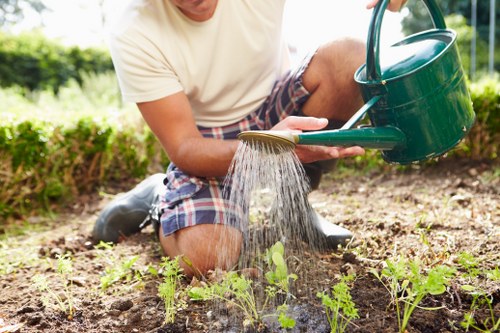
Gardener Hampton is synonymous with lush, vibrant gardens that bring joy and tranquility to homeowners. Whether you're a seasoned gardener or just starting, understanding the unique aspects of gardening in Hampton can help you cultivate a beautiful outdoor space.
Hampton's climate plays a significant role in determining the types of plants that thrive here. With its mild winters and warm summers, the region is ideal for a wide variety of flowers, shrubs, and trees.
One of the key factors for a successful garden in Hampton is soil quality. Rich, well-draining soil ensures that plants receive the necessary nutrients and water without becoming waterlogged.
Understanding Hampton's Climate
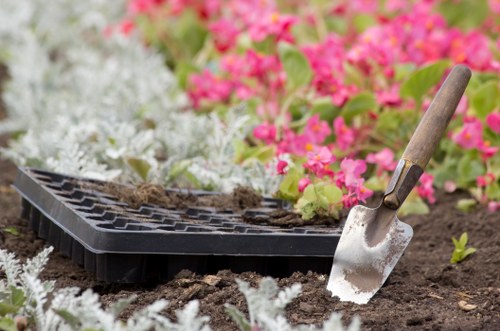
The climate in Hampton is classified as humid subtropical, which means residents experience hot, humid summers and cool winters. This climate is perfect for growing a variety of plants, from vibrant annuals to hardy perennials.
Spring and fall are the best times to plant in Hampton, as the temperatures are more moderate, allowing plants to establish themselves before the extreme heat or cold.
Rainfall is evenly distributed throughout the year, reducing the need for extensive irrigation. However, occasional droughts can occur, so having a water-efficient irrigation system is beneficial.
Choosing the Right Plants for Hampton Gardens
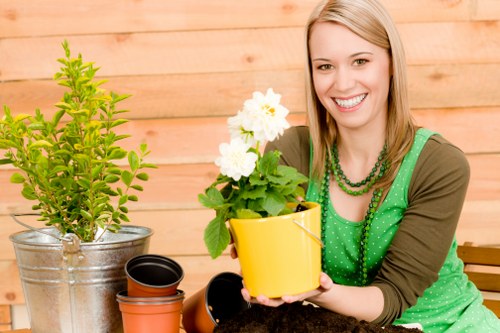
Selecting plants that are well-suited to Hampton's climate is crucial for a thriving garden. Here are some popular choices:
- Azaleas: These flowering shrubs add vibrant colors to any garden and thrive in Hampton's acidic soil.
- Hydrangeas: Known for their large, beautiful blooms, hydrangeas are a staple in Hampton gardens.
- Camellias: These evergreen shrubs provide stunning flowers during the cooler months.
- Gardenias: With their fragrant white flowers, gardenias are perfect for adding a touch of elegance.
- Hostas: Ideal for shaded areas, hostas offer lush foliage and subtle flowers.
Optimizing Soil Health
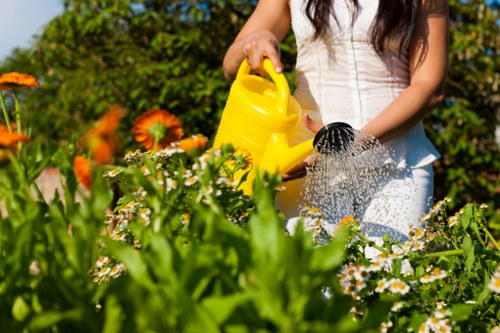
Healthy soil is the foundation of a successful garden. In Hampton, it's essential to regularly test your soil to determine its pH level and nutrient content.
Adding organic matter, such as compost or well-rotted manure, can improve soil structure, increase fertility, and enhance water retention.
Mulching is another important practice that helps retain moisture, suppress weeds, and regulate soil temperature.
Garden Maintenance Tips
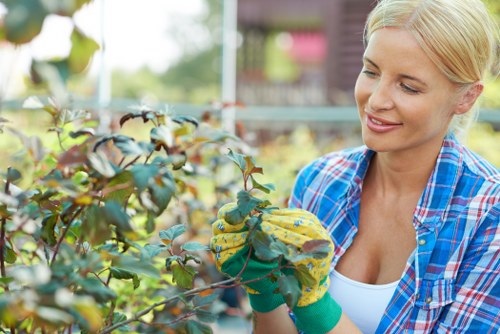
Maintaining your garden requires regular attention and care. Here are some essential maintenance tips for Hampton gardeners:
- Watering: Water your plants early in the morning to reduce evaporation and prevent diseases.
- Pruning: Regular pruning helps maintain plant shape, removes dead or diseased branches, and encourages healthy growth.
- Weeding: Keep your garden free of weeds to reduce competition for nutrients and water.
- Fertilizing: Apply the appropriate fertilizers based on your soil test results to ensure plants receive necessary nutrients.
- Pest Control: Monitor your garden for pests and use eco-friendly methods to manage infestations.
Seasonal Gardening Activities
Different seasons bring different tasks for gardeners. In Hampton, consider the following seasonal activities:
- Spring: Plant annuals, prune shrubs, and prepare garden beds.
- Summer: Water regularly, deadhead flowers, and manage pests.
- Fall: Plant perennials, mulch beds, and prune trees.
- Winter: Protect plants from frost, plan for the upcoming season, and maintain gardening tools.
Tools and Equipment for Hampton Gardens
Having the right tools makes gardening easier and more enjoyable. Some essential tools for Hampton gardeners include:
- Gloves: Protect your hands from dirt, thorns, and blisters.
- Pruners: Essential for trimming and shaping plants.
- Spade: Useful for digging and turning soil.
- Garden Fork: Helps in aerating and loosening the soil.
- Irrigation Systems: Efficient watering systems ensure plants receive adequate moisture.
Eco-Friendly Gardening Practices
Embracing eco-friendly gardening practices benefits both your garden and the environment. Consider the following tips:
- Composting: Recycle kitchen scraps and garden waste to create nutrient-rich compost.
- Rainwater Harvesting: Collect rainwater to use for irrigation, reducing water consumption.
- Native Plants: Incorporate native species that are well-adapted to the local climate and require less maintenance.
- Organic Pest Control: Use natural predators or organic pesticides to manage pests without harming beneficial insects.
- Reduce Chemical Use: Minimize the use of chemical fertilizers and herbicides to maintain a healthy ecosystem.
Landscaping Ideas for Hampton Gardens
Enhance the beauty and functionality of your garden with creative landscaping ideas:
- Patio Areas: Create cozy outdoor living spaces with patios, seating areas, and fire pits.
- Water Features: Incorporate fountains, ponds, or waterfalls to add a calming element.
- Pathways: Design attractive pathways using stones, gravel, or paving slabs.
- Decorative Lighting: Use solar-powered or LED lights to illuminate your garden at night.
- Vertical Gardens: Maximize space by growing plants vertically on walls or trellises.
Creating a Garden Sanctuary
A garden sanctuary provides a peaceful retreat from the hustle and bustle of daily life. Here’s how to create one in Hampton:
- Seating Areas: Place benches or hammocks in quiet corners for relaxation.
- Personal Touches: Add sculptures, birdbaths, or wind chimes to personalize your space.
- Privacy Screens: Use hedges, fences, or trellises to create secluded areas.
- Fragrant Plants: Incorporate scented flowers and herbs to enhance the sensory experience.
- Soothing Sounds: Install water features or plant rustling grasses to provide gentle background noise.
10-15 Nearby Areas to Hampton for Gardening Enthusiasts
Gardener Hampton not only thrives in Hampton but also extends its expertise to nearby areas. Here are some of the closest areas and what makes them unique for gardeners:
- Virginia Beach: Known for its expansive coastal gardens and salt-tolerant plants.
- Suffolk: Offers rich agricultural land perfect for vegetable gardens and orchards.
- Norfolk: Features urban gardens and community planting projects.
- Newport News: Home to botanical gardens and educational horticulture programs.
- Poquoson: Ideal for small-scale gardening and ornamental plants.
- Williamsburg: Combines historical garden styles with modern landscaping.
- Chesapeake: Offers diverse gardening opportunities with its varied landscapes.
- Lorton: Known for its community gardens and sustainable gardening practices.
- Tidewater: Features gardens that adapt well to the local climate and soil conditions.
- Emporia: Great for traditional and heritage plant varieties.
- Hopewell: Balances residential and commercial gardening spaces.
- Smithfield: Known for its rich soil, perfect for extensive garden beds.
- Pageville: Offers serene garden settings and private landscaping options.
- Yorktown: Combines historical garden layouts with contemporary designs.
Conclusion
Gardener Hampton is dedicated to helping residents create and maintain beautiful gardens that flourish in Hampton's unique climate. By understanding the local conditions, selecting the right plants, and employing effective gardening practices, you can enjoy a thriving garden year-round.
Whether you're inspired by the coastal gardens of Virginia Beach or the historical landscapes of Williamsburg, Hampton offers endless possibilities for gardeners of all levels.
Transform your outdoor space into a personal sanctuary with the expert tips and insights provided by Gardener Hampton.
Frequently Asked Questions
1. What are the best plants to grow in Hampton's climate?
Plants like azaleas, hydrangeas, camellias, gardenias, and hostas thrive in Hampton's humid subtropical climate.
2. How often should I water my garden in Hampton?
Watering should typically be done early in the morning, with frequency depending on the season and specific plant needs. Generally, 1-2 times a week is sufficient, but during droughts, more frequent watering may be necessary.
3. What type of soil is best for gardening in Hampton?
Hampton gardens benefit from rich, well-draining soil. Adding organic matter like compost can improve soil structure and fertility.
4. How can I protect my garden from pests naturally?
Use organic pest control methods such as introducing beneficial insects, using natural pesticides, and maintaining garden hygiene to manage pests effectively.
5. What are some eco-friendly gardening practices for Hampton?
Implementing composting, rainwater harvesting, planting native species, using organic pest control, and reducing chemical use are all eco-friendly practices suitable for Hampton gardens.

